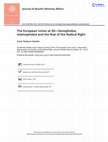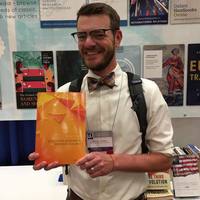Papers by Zuhal Yeşilyurt Gunduz

PERCEPTIONS: Journal of International Affairs, Jul 1, 2006
This article's main topic is the securitization of HIV/AIDS. The first part of the article deals ... more This article's main topic is the securitization of HIV/AIDS. The first part of the article deals with the concepts of human security and securitization. Hereby the UN's 1994 Human Development Report's new concept of human security will be dealt with, as this concept changed the view to HIV/AIDS immensely. The article will then show the theoretical background of securitization and its implications for HIV/AIDS. Then the UN Security Council meeting on 10 January 2000, in which the Security Council for the first time ever discussed a health issue and the UN Resolution 1308 from 17 July 2000 on "HIV/AIDS and international peacekeeping operations", will be dealt with. The article will then show the advantages and disadvantages of the securitization of HIV/AIDS. It aims to show that HIV/AIDS-due to its immense ramifications-is not "only" a health problem, but an international relations problem that the world has to face together. HIV/AIDS should be considered as a threat against human security and not a national or global security threat. It has to be dealt with globally in order to fight not the people living with HIV/AIDS, but the virus itself. As health cannot be regarded as standing alone, as poverty and health are interconnected, all circumstances and the social environment have to be taken into account-poverty, inequalities, injustices must be dealt with. Only then will the HIV/AIDS epidemic be reduced.
Sicherheit, Militär und Geschlecht, 2020
The European Union's Broader Neighbourhood, 2015

PERCEPTIONS: Journal of International Affairs, Jul 1, 2006
This article's main topic is the securitization of HIV/AIDS. The first part of the article deals ... more This article's main topic is the securitization of HIV/AIDS. The first part of the article deals with the concepts of human security and securitization. Hereby the UN's 1994 Human Development Report's new concept of human security will be dealt with, as this concept changed the view to HIV/AIDS immensely. The article will then show the theoretical background of securitization and its implications for HIV/AIDS. Then the UN Security Council meeting on 10 January 2000, in which the Security Council for the first time ever discussed a health issue and the UN Resolution 1308 from 17 July 2000 on "HIV/AIDS and international peacekeeping operations", will be dealt with. The article will then show the advantages and disadvantages of the securitization of HIV/AIDS. It aims to show that HIV/AIDS-due to its immense ramifications-is not "only" a health problem, but an international relations problem that the world has to face together. HIV/AIDS should be considered as a threat against human security and not a national or global security threat. It has to be dealt with globally in order to fight not the people living with HIV/AIDS, but the virus itself. As health cannot be regarded as standing alone, as poverty and health are interconnected, all circumstances and the social environment have to be taken into account-poverty, inequalities, injustices must be dealt with. Only then will the HIV/AIDS epidemic be reduced.
Iglesia viva: revista de pensamiento cristiano, 2017

Monthly Review, Jan 4, 2011
How is it possible that a person living in a water-rich region uses more water by flushing the to... more How is it possible that a person living in a water-rich region uses more water by flushing the toilet than a person in a water-scarce region has available for drinking, food-preparation, hygiene, and cleaning—for a whole day? How is it possible that a woman living in a water-rich region only needs to open the tap to get enough water for herself and her family, while a woman in a water-scarce region has to…walk for miles and miles to get far less water of much worse quality? Why is that so? Is it bad fortune? Unfair? Destiny? Undeserved? Is it unjust? It is all these, but also much more. Water is the essence of life. It is the precondition of life.… This article has two parts. The first deals with dominant positions concerning water: the neoliberal agenda, consequences of water privatization, and the UN stance. The second part looks at what is missing in this picture and ignored by the dominant perspectives—namely, global inequalities and gender discrimination. This article can also be found at the Monthly Review website , where most recent articles are published in full. Click here to purchase a PDF version of this article at the Monthly Review website.
Monthly Review, Dec 3, 2013
Even though it's paid well, you are sinking in the amount of your work…. It [is] also very depres... more Even though it's paid well, you are sinking in the amount of your work…. It [is] also very depressing. The only thing you can do is give all your love to [the two-yearold American child]. In my absence from my children, the most I could do with my situation is give all my love to that Child."-Vicky Diaz, domestic care worker in Beverly Hills, who had to leave her children in her home country 1 "I'm living here in this hostel, and my classes are fine, but I can't talk to my mother. I can't tell her things. I can't see her face. I can't hug her…. My mother misses me, too. My mother will retire at some point, but how old will I be then?"-Priya, Keralian (India) college student, whose mother works as a foreign domestic worker 2 Migration, care, care Drain, and care chains
Journal of Muslim Minority Affairs, Mar 1, 2010
... Salwa Bakr, Basem Ezbidi, Datò Mohammed Jawhar Hassan, Fikret Karcic, HananKassab-Hassan and ... more ... Salwa Bakr, Basem Ezbidi, Datò Mohammed Jawhar Hassan, Fikret Karcic, HananKassab-Hassan and Mazhar Zaidi, “Die muslimische Welt und der Westen”, Aus Politik und Zeitgeschichte, B 37/2003, pp. ... S. Zubaida, “Islam in Europe”, op. ...
DergiPark (Istanbul University), Sep 1, 2004

Ankara Avrupa Calismalari Dergisi, 2004
Europe is a controversial continent. Although Europe stands for high values and fundamental right... more Europe is a controversial continent. Although Europe stands for high values and fundamental rights, it simultaneously demonstrates a rise in Islamophobia-the fear of Islam and Muslims, and Xenophobia-the fear of immigrants, foreigners and strangers. On March 18, 2007, the European Union celebrated its 50th anniversary. Whereas it could be expected that the European Union should by now-at the age of 50-be mature enough to outgrow racism, the opposite seems to be the reality. The radical right has risen in an unprecedented way and what is even worse-the centre-right has adopted far rightist approach and by that has become more radical and radicalized. This article tries to explore these two interconnected topics: the discrimination against Muslims living in the EU member states and the dangerously rising phenomenon of the radical right, manifested in their national election results and in the radicalization of the agenda of the centreright political parties. The author fears that these two trends endanger numerous ideals and ideas Europe stands for, and hopes that the EU can stop racism once and for all.
Monthly Review, 2013
Even though it's paid well, you are sinking in the amount of your work…. It [is] also very depres... more Even though it's paid well, you are sinking in the amount of your work…. It [is] also very depressing. The only thing you can do is give all your love to [the two-yearold American child]. In my absence from my children, the most I could do with my situation is give all my love to that Child."-Vicky Diaz, domestic care worker in Beverly Hills, who had to leave her children in her home country 1 "I'm living here in this hostel, and my classes are fine, but I can't talk to my mother. I can't tell her things. I can't see her face. I can't hug her…. My mother misses me, too. My mother will retire at some point, but how old will I be then?"-Priya, Keralian (India) college student, whose mother works as a foreign domestic worker 2 Migration, care, care Drain, and care chains

Monthly Review, 2011
How is it possible that a person living in a water-rich region uses more water by flushing the to... more How is it possible that a person living in a water-rich region uses more water by flushing the toilet than a person in a water-scarce region has available for drinking, food-preparation, hygiene, and cleaning—for a whole day? How is it possible that a woman living in a water-rich region only needs to open the tap to get enough water for herself and her family, while a woman in a water-scarce region has to…walk for miles and miles to get far less water of much worse quality? Why is that so? Is it bad fortune? Unfair? Destiny? Undeserved? Is it unjust? It is all these, but also much more. Water is the essence of life. It is the precondition of life.… This article has two parts. The first deals with dominant positions concerning water: the neoliberal agenda, consequences of water privatization, and the UN stance. The second part looks at what is missing in this picture and ignored by the dominant perspectives—namely, global inequalities and gender discrimination. This article can also be found at the Monthly Review website , where most recent articles are published in full. Click here to purchase a PDF version of this article at the Monthly Review website.
Journal of Muslim Minority Affairs, 2010
... Salwa Bakr, Basem Ezbidi, Datò Mohammed Jawhar Hassan, Fikret Karcic, HananKassab-Hassan and ... more ... Salwa Bakr, Basem Ezbidi, Datò Mohammed Jawhar Hassan, Fikret Karcic, HananKassab-Hassan and Mazhar Zaidi, “Die muslimische Welt und der Westen”, Aus Politik und Zeitgeschichte, B 37/2003, pp. ... S. Zubaida, “Islam in Europe”, op. ...
Bibliographie: : Yesilyurt Gunduz, Zuhal/Demirtas, Birgul: Die Universitat als Spiegelbild des po... more Bibliographie: : Yesilyurt Gunduz, Zuhal/Demirtas, Birgul: Die Universitat als Spiegelbild des politischen Zeitgeists – Stimmen turkischer Politikwissenschaftlerinnen, Femina Politica – Zeitschrift fur feministische Politikwissenschaft, 1-2020, S. 164-169. https://doi.org/10.3224/feminapolitica.v29i1.19










Uploads
Papers by Zuhal Yeşilyurt Gunduz